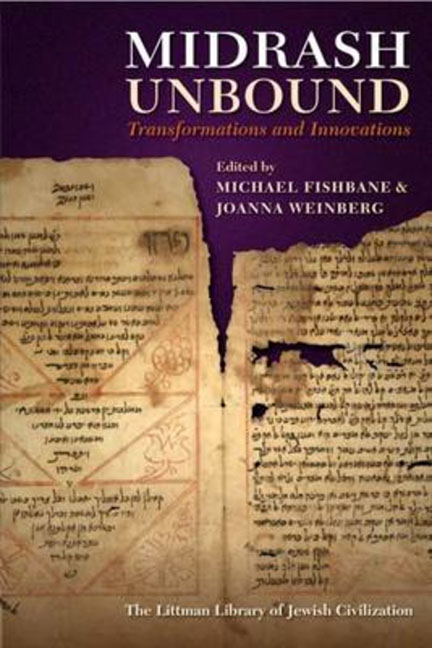17 - Midrash in Medieval and Early Modern Sermons
Summary
IN THE FOLLOWING STUDY I will be using the word ‘Midrash’ loosely to refer not just to statements in collections known as Midrash, but to the full corpus of aggadic statements from rabbinic literature, including the Talmud, hooked to a biblical verse. I will not be dealing with the evidence for preaching in the rabbinic period and in the late midrashic literature. The nature of the rabbinic sources removes us at some distance from the sermon as I understand it: an oral communication, for which written texts provide at best an imperfect record.
Despite the impressive work of scholars who have continued to mine this literature for evidence of the sermons delivered during the classical rabbinic period, I doubt that the classical rabbinic texts have preserved a single direct and complete record of a sermon actually delivered. This is in stark contrast with the texts of hundreds of sermons delivered by Christian contemporaries of the Jewish sages: Augustine, Chrysostom, and many other Church Fathers, whose sermons, stenographically transcribed during delivery, are replete with references to the specific situation and convey the personal voice of the preacher. Indeed, we have few such Jewish texts from before the latter part of the fourteenth century.
My topic will therefore not be the sermon in Midrash, but Midrash in the sermon. I will be focusing on specific examples of sermons by three medieval or early modern preachers: Jacob Anatoli, from thirteenth-century southern France, Shem Tov ibn Shem Tov, from late fifteenth-century Spain, and Saul Levi Morteira, from seventeenth-century Amsterdam. Since, unlike technical treatises on philosophy or rabbinic law, the sermon is intended for the entire community of Jews, who would hear it in their vernacular language within the context of public worship, it provided an important medium for disseminating the non-legal component of rabbinic literature to those who would rarely have encountered it in formal Jewish study.
Jacob Anatoli was one of the earliest Jewish preachers in Christian Europe who has left a written record of sermonic texts. Son-in-law of Samuel ibn Tibbon, the translator of Maimonides’ Guide of the Perplexed, he was deeply influenced by the philosophical tradition. He translated several technical Aristotelian works from Arabic into Hebrew, claiming that a sound knowledge of logic was necessary for Jews to be able to withstand ‘the clever scholars of the other nations who polemicize against us’.
- Type
- Chapter
- Information
- Midrash UnboundTransformations and Innovations, pp. 371 - 388Publisher: Liverpool University PressPrint publication year: 2013



